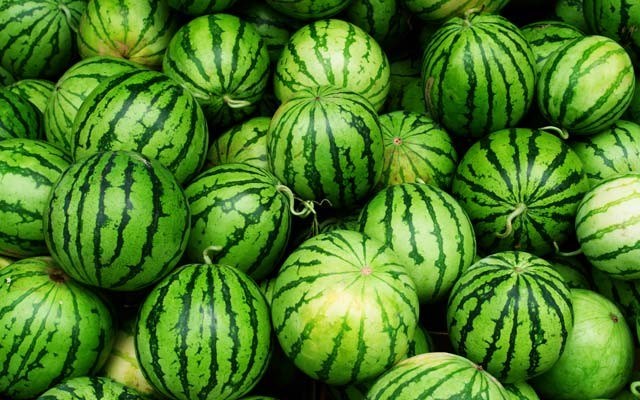Canada is a big country. Big enough that you can never really know everything happening in its multitudinous corners. Big enough that when you do discover arcane goings-on in a far-flung locale and think you shouldn't be surprised, you might actually end up shaking your head anyway. Recently, I had such a moment.
On a trip to southern Manitoba to document the fossil beasts erupting from ancient sea sediments near the town of Morden, I'd instead chosen to stay in much larger Winkler, some 10 minutes away. Winkler is a mostly Mennonite city of 11,000 anchoring a deeply religious region where "God Bless this Crop" sign-trailers are so numerous that I wish I owned the sign-trailer franchise. As the commercial heart of an area boasting wheat, corn and canola on every horizon that also builds everything from mobile homes to farm equipment, Winkler otherwise seems, on the face of it, requisitely old-school: traffic signs warning of horse-drawn buggies line the highway, and the century-old town's very first liquor store opened only last November.
Though I'd chosen the typically homogenized environs of a national chain motel near the highway, the vibe was still a little odd, the people I talked to there — whether employees or patrons, new immigrants or hard-bitten, multi-generational Prairie farmers — hard to place in the grand scheme of things. I put the hodge-podge down to cultural differences. But when I mentioned my unease to the fossil folks from Morden, they'd jumped right in.
— Winkler is just plain weird, said one.
— Yeah, good place to do business, but that's about it, chimed in another.
— It's strange all right. There are things on menus you don't even want to order.
— That and... they need to learn watermelon isn't a main course, ha ha!
Apparently townsfolk consumed vast quantities of the fruit at every meal and always offered it to guests. If you asked anyone in town where the "Watermelon Store" was, they'd direct you to a warehouse where a steady stream of locals loaded it into the beds of pickups to cart home. What was this all about? I'd wanted to know.
— It's Texas fruit. Flows north with furniture and other goods along the Mennonite pipeline between Winkler and Mexico.
— Yeah, the Mennonites down in Chihuahua are still pretty connected to Winkler.
— You know about that, right? The Mennonite Mafia? It's why Winkler is the cocaine capital of the Prairies.
Whaaaat? These guys had to slow down. But when they did, and explained it all to me, I was gobsmacked. Of course, all I'd really had to do was read the local papers.
Only a couple weeks earlier, on August 5, in a joint sting involving Winkler and Morden Police Services and the RCMP's organized crime unit, the execution of four search warrants had resulted in the arrest of 10 people on possession for purposes of trafficking in marijuana, LSD and, most notably a shit-ton of cocaine. All of it came from Mexico. It wasn't the first such interdiction; in fact, there was a lengthy trail that anyone with a Twitter account or access to Google could easily follow.
In September, 2013, @nationalpost tweeted the headline "Mennonites linked to Mexican cartels established cocaine smuggling pipeline near Alberta border: police." Another Twitter user had responded "@nationalpost could of told u that back in 2002 when I unknowingly stumbled upon some mennonites smuggling cocaine... nice polite group!" then he'd added: "Winkler, Manitoba was the destination! Sure wish it was pot could of robbed the buggy bandits!"
It took little digging to uncover the history of this astounding, counterintuitive situation.
The story starts in 1874, when Old Colony Mennonites began an exodus from southern Russia over the threat of forced assimilation. Promised large chunks of land and the freedom to school their children in their native low-German by the Canadian government, many settled in Manitoba. When the feds later backtracked, insisting Mennonite kids attend public school, some 6,000 defiantly packed back up and, in 1922, headed to Cuauhtémoc in northern Mexico, where they again got to work tilling obstinate soil.
Although entire villages eventually transplanted from Canada, folks maintained their connection, naming their colonies things like Manitoba and Swift Current and retaining their Canadian citizenship. By the early 1980s, however, the itinerant Mennonites' latest utopian gambit was under threat from a devalued peso, severe drought, trade restrictions, and an end to government subsidies. On the move again, many returned to Canada, settling in farm towns like Leamington in Southern Ontario. Supporting their generally large families was always a struggle, and so not just a few pious souls were turned by the financial attractions of various non-violent crimes. But it was in the dangerous and growing international drug trade — where dual Canadian-Mexican citizenship and a reputation for a community code of silence were advantageous — that some Mennonites truly flourished...
Next time: Mennonite weed control goes continental.




